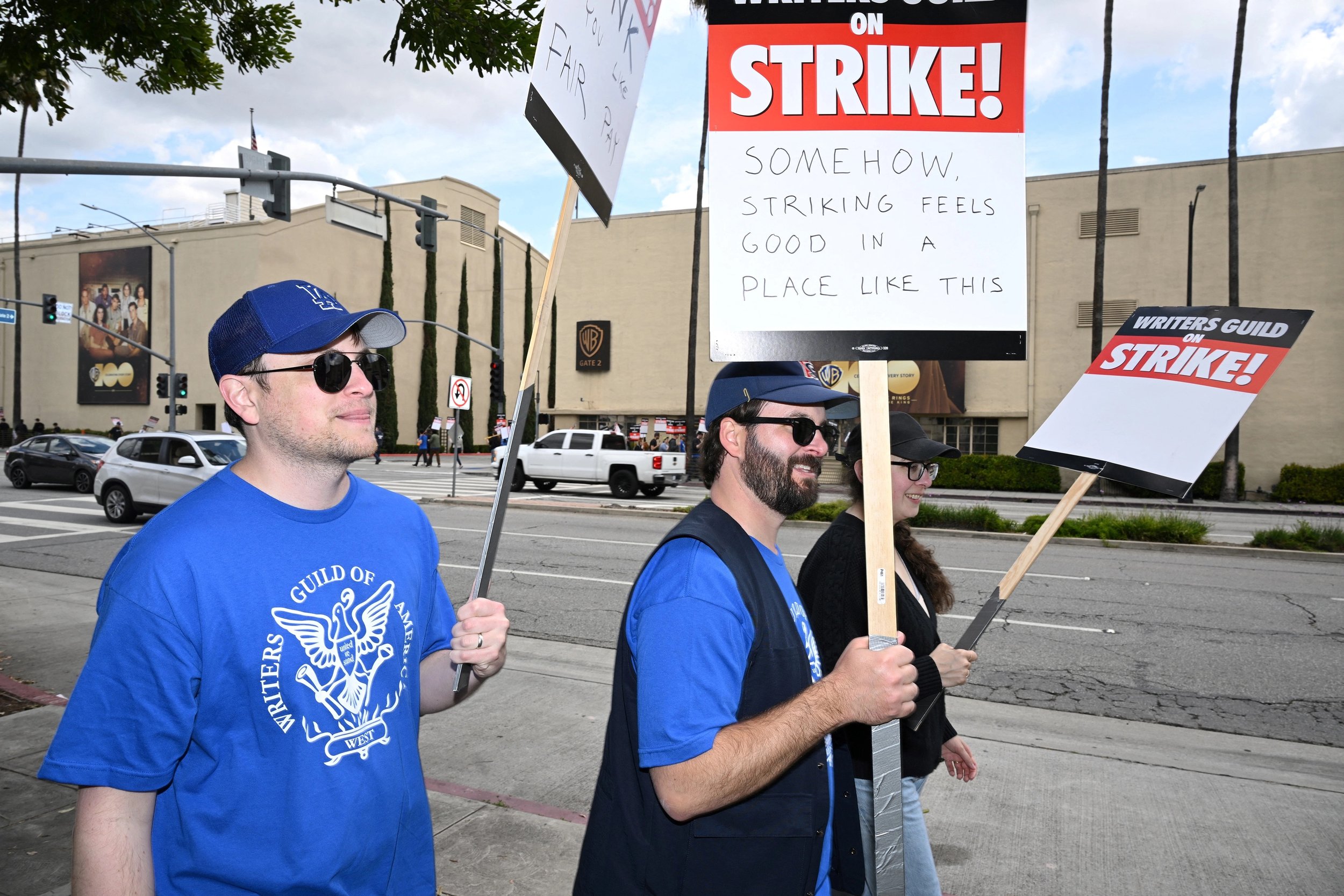Deadline: Disabled Writers Face Potential Loss Of $2M In Earnings During WGA Strike, But Still Support Walkout, Study Says
Image Description: Three people wearing baseball caps, sunglasses and blue t-shirts that say Writers Guild or Americas with the WGA logo walking by the side of a busy street and holding picket signs that read, “Writers Guild on Strike! Somehow striking feels good in a place like this”
Disabled writers face an even more challenging time amid the WGA writers strike, with a potential loss of more than $2 million in earnings, but still support the work stoppage, according to the Inevitable Foundation’s Disabled Writers Strike Impact survey.
According to the report (read here), which is not affiliated with the Writers Guild of America, 57% said they would lose work or income, and 53% said they would lose career prospects or momentum. Forty-seven percent said they would have to find alternative employment outside the entertainment industry and in the event of a work stoppage, which is now underway, disabled writers surveyed said they would lose a total of more than $2 million in contractually committed earnings, not including any prospective job opportunities.
However, despite the disadvantages of a work stoppage, disabled writers still feel it is worth the fight.
“With another strike, the people like me who are at the bottom would hurt the most. But those setbacks are a small price to pay for the fair treatment of all writers,” said one disabled writer quoted in the survey.
Another writer put the issues before them into focus: “I feel that a strike might ultimately have an extremely positive impact. Average writer income is down and career instability is way up. The industry is changing and if writers don’t fight for what they’re worth, it won’t be a viable career for much longer.”
Many are particularly concerned about the possible prolonged length of a work stoppage. When asked what they would need to stay afloat in the event of a strike, 50% said they would need financial support, and 47% said they would need career support to get back on their feet after the strike was over.
Forty-six percent said they had strong job prospects, meaning they’ve had multiple conversations with a single network or streamer about a specific project. In the case of a work stoppage, up to 100% of these potential earnings would be lost. One writer shared they were “making plans to live elsewhere with a lower cost of living to ride out the strike.”
Several respondents also are extremely concerned about health care coverage. “If a strike happens and I am unable to work, I will have to face exorbitant costs for insurance or go without and face exorbitant out-of-pocket costs,” another writer said in response to the survey.
The last WGA strike, in 2008, lasted more than 3 months. But 43% of working disabled screenwriters have less than 3 months of savings, and 67% have 6 months or less.
The strike is a result of the WGA and AMPTP being unable to reach an agreement on a new deal when the WGA contract expired at 11:59 pm on Monday night.
Said another writer in response to the Inevitable Foundation survey: “Average writer income is down and career instability is way up. The industry is changing and if writers don’t fight for what they’re worth, it won’t be a viable career for much longer. I’m not sure the specific proposals the guild is making are the perfect solution, but writers have to do something.”
